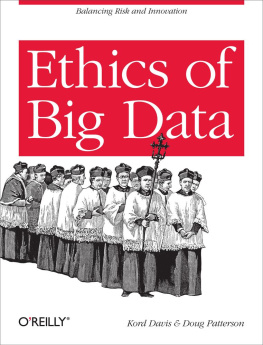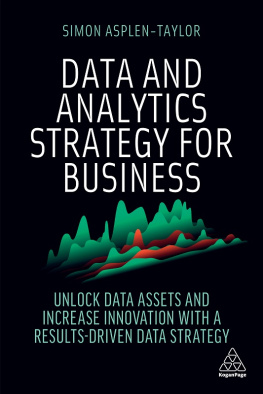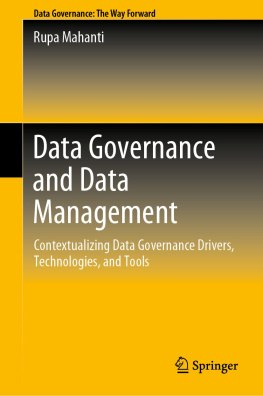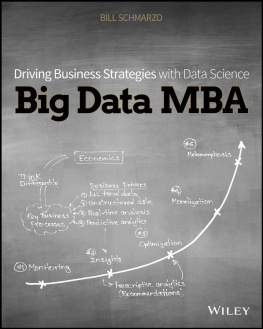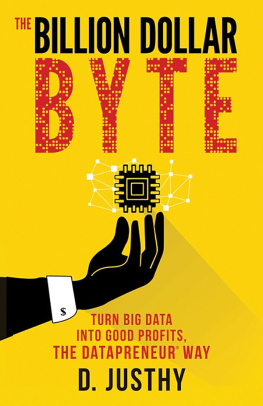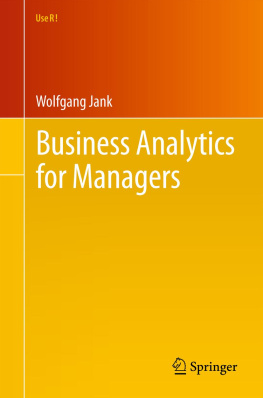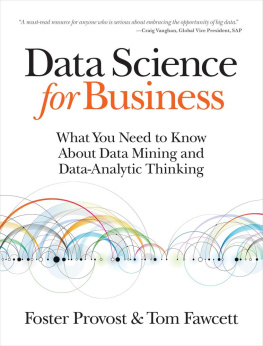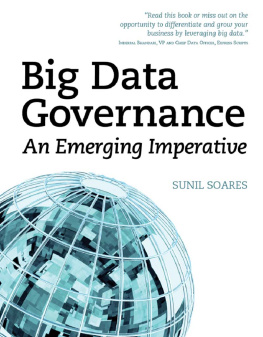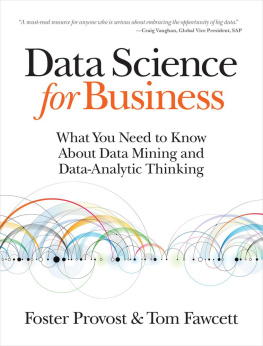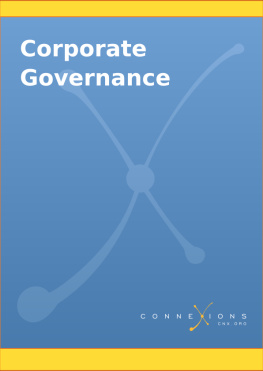To my friends and family. Who make it possible.
Preface
Philosophy and business dont always get along well. Philosophy is generally not much concerned with the practical implications of its investigations and, conversely, business is often deeply interested in the tactical outcomes of its operations.
And ethics is a loaded word. Preconceived notions of what ethics mean, even as a legitimate field of study, often make people shy away from it as a topic of discussion. Its hard to talk about what we dont fully understand and even the word itself can sometimes imply judgment: do-this-dont-do-that kinds of directives and obligations. And we all frequently chafe when we think were being told what to do.
This book tries to diminish these difficulties. Not because they are difficult (ethical inquiry can be hard work) but because they create barriers to helping organizations benefit from philosophical thinking and inquiry. And there are plenty of benefits. The primary characteristic of my approach was to recognize that business contexts, markets, companies, cultures, geographic distinctions, and organizational size and maturity all contribute to an unwieldy set of complex and different circumstances. Circumstances with which you are much more familiar in your own case and therefore more qualified to determine how best to inform your organizations operations with ethical inquiry.
People often ask me: how did you get from a degree in philosophy to consulting? The answer varied and evolved over the yearsmostly as consequence of me learning more about how to answer the question. And it bears on the relationship between philosophy and business in general and ethics and big data in particular.
My interest in technology started in 5th grade when my grandmother gave me a 75 in One Electronic Project Kitvintage editions are still available on eBay! It turned out that wires and batteries and capacitors and resistors could all be combined and recombined to create brand new circuits that performed all manner of fascinating and interesting functions. Through high school programming classes and working in telecommunications as a Radioman for most of my nearly 5 years in the United States Coast Guard, I came to realize that what was engaging about technology was that it spoke to the essence of some important and hard facts about our physical world. Energy flowed and could be directed. Radio waves were generated and could carry digital information. Transistors and other semiconductor materials could be combined to create powerful new computing processing and storage devices. And software could be written that would make all those devices do some amazing things.
Youd think I would have studied physics or computer science. Instead what happened is that philosophy captured my attention by offering the best of both worlds: the rigor of analysis and investigation into the essence of all things and an open and willing approach to understanding how science and technology itself works. I was sold.
A key motivation for this book is to apply the tools that philosophy in general, and ethical inquiry in particular, provide us to evolve technology and shape it into tools that can help us live better, easier lives.
Enter big data. This aspect of technology is unique in that its very nature (its essence) is to create, connect, correlate, aggregate, store, process, and report on massive amounts of information. As human beings, we have simply never seen, let alone understood, how to manage that much data. One of the implications of amassing this much information, especially about people and their behaviors, is what Im calling big datas forcing function. It is pushing uswhether we like it or notto consider serious ethical issues including whether certain uses of big data violate fundamental civil, social, political, and legal rights.
These are long, complex, and deeply important conversations. And, as a society, were not having enough of them. But its hard to have them because were not accustomed to having them in business environments very much. And ethics can be a loaded word. So, the hope is that this work will help you and your organization begin to develop the capability to engage in explicit ethical inquiry in new ways and in new contexts. To begin, the methods, concepts, and intentional vocabulary in this book are intended to provide you with a better ability to determine, in your own unique circumstances, how best to execute on and utilize the results of explicit ethical inquiry to improve your organization.
Such discussions are in their infancy in terms of understanding both the issues and their outcomes. We are all just figuring it out as we goa circumstance about which we have no other choice. Nobody in history has ever had the opportunity to innovate, or been faced with the risks of unintended consequences, that big data now provides.
I look forward to being a part of that ongoing discussion. OReilly has constructed a tool chain that allows this book to be easily updated and re-distributed through print-on-demand and digital channels. As the collective understanding and use of big data evolves, the work can evolve right along with it.
Conventions Used in This Book
The following typographical conventions are used in this book:
ItalicIndicates new terms, URLs, email addresses, filenames, and file extensions.
Using Code Examples
This book is here to help you get your job done. In general, you may use the code in this book in your programs and documentation. You do not need to contact us for permission unless youre reproducing a significant portion of the code. For example, writing a program that uses several chunks of code from this book does not require permission. Selling or distributing a CD-ROM of examples from OReilly books does require permission. Answering a question by citing this book and quoting example code does not require permission. Incorporating a significant amount of example code from this book into your products documentation does require permission.
We appreciate, but do not require, attribution. An attribution usually includes the title, author, publisher, and ISBN. For example: Ethics of Big Data by Kord Davis with Doug Patterson (OReilly). Copyright 2012 Kord Davis, 978-1-449-31179-7.
If you feel your use of code examples falls outside fair use or the permission given above, feel free to contact us at .
Safari Books Online
Note
Safari Books Online (www.safaribooksonline.com) is an on-demand digital library that delivers expert content in both book and video form from the worlds leading authors in technology and business.
Technology professionals, software developers, web designers, and business and creative professionals use Safari Books Online as their primary resource for research, problem solving, learning, and certification training.
Safari Books Online offers a range of product mixes and pricing programs for organizations, government agencies, and individuals. Subscribers have access to thousands of books, training videos, and prepublication manuscripts in one fully searchable database from publishers like OReilly Media, Prentice Hall Professional, Addison-Wesley Professional, Microsoft Press, Sams, Que, Peachpit Press, Focal Press, Cisco Press, John Wiley & Sons, Syngress, Morgan Kaufmann, IBM Redbooks, Packt, Adobe Press, FT Press, Apress, Manning, New Riders, McGraw-Hill, Jones & Bartlett, Course Technology, and dozens more. For more information about Safari Books Online, please visit us online.

